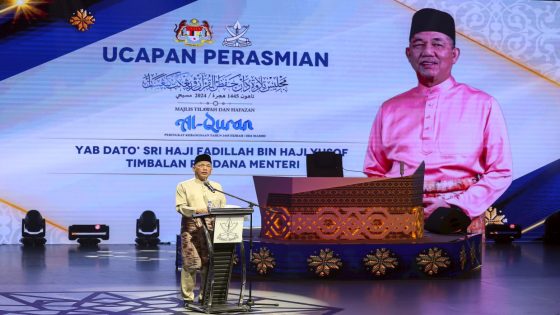PONTIAN: The Energy Transition and Water Transformation Ministry is targeting a 40% mix of renewable energy in the country’s fuel mix by 2035, says Datuk Seri Fadillah Yusof.
The Deputy Prime Minister, who is also the Energy Transition and Water Transformation Minister, added the set target was expected to reduce the production of carbon dioxide gas by 10 million tons per year.
“Realising that the energy sector is the largest contributor to greenhouse gas production, the ministry is committed to further increasing the capacity of renewable energy in the fuel mix to achieve the aspiration of a net zero country as early as 2050.
“This effort is very important to ensure the sustainability of nature is preserved for future generations.
“Now, the world is witnessing various phenomena that threaten the environment due to unpredictable weather changes and uncontrolled environmental destruction,” he added.
Fadillah said this in his speech before officiating Malakoff Corporation Berhad (Malakoff) biomass co-firing project at its 2,100 megawatt coal-fired Tanjung Bin power plant here on Sunday (May 26).
He added the initiative implemented by Malakoff is one of the 10 flagship projects under the National Energy Transition Roadmap that was launched in 2023.
Fadillah said it supported the government’s recommendation to use biomass and biogas in energy production by targeting 1.4 gigawatts by 2050 where biomass contributes to 998 megawatts.
He also said the country’s energy sector represents 29% of Malaysia’s Gross Domestic Product (GDP) and employs a quarter of the country’s workforce.
“Looking at this great contribution, any changes in the energy system will not only affect the country’s income and economic development but also the people’s lives who depended on affordable and reliable energy sources.
“Therefore, this energy transition agenda needs to be implemented responsibly, fairly and equitably,” he added.
Fadillah said the ministry was open and supported efforts by the industries to explore the use of new technologies.
He added among the new technologies were green hydrogen production technology, carbon capture, use and storage (CCUS) technology, nuclear technology such as small modular reactors, large-scale energy storage battery technology and many others.
“Use of new technology will be able to reduce the country’s dependence on fossil fuels and help Malaysia to achieve a reduction in carbon intensity of 45% in 2030 as has been signed under the Paris Agreement in 2016,” he said.
Source Agencies


